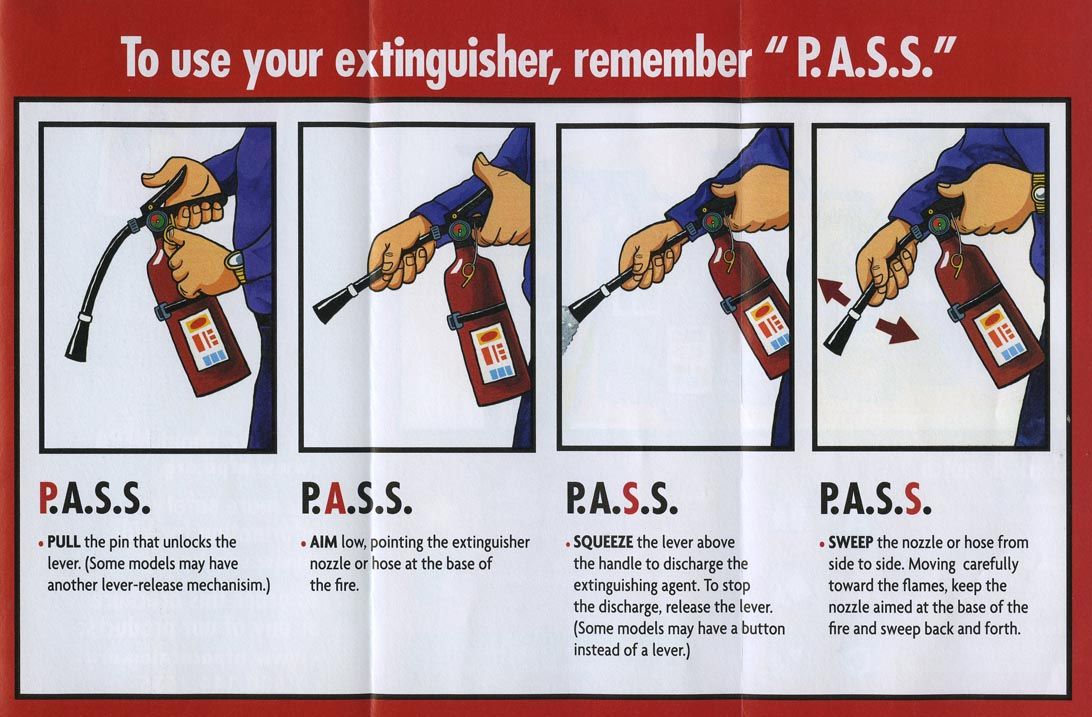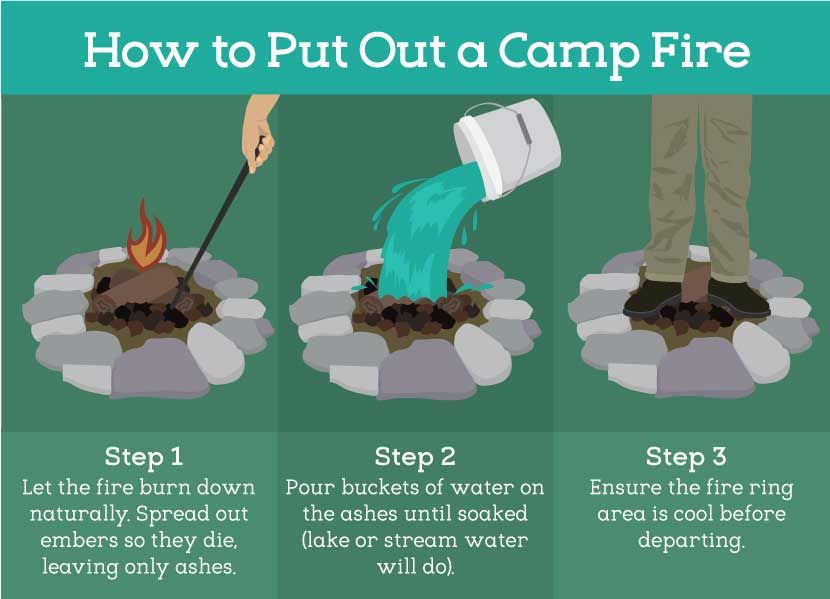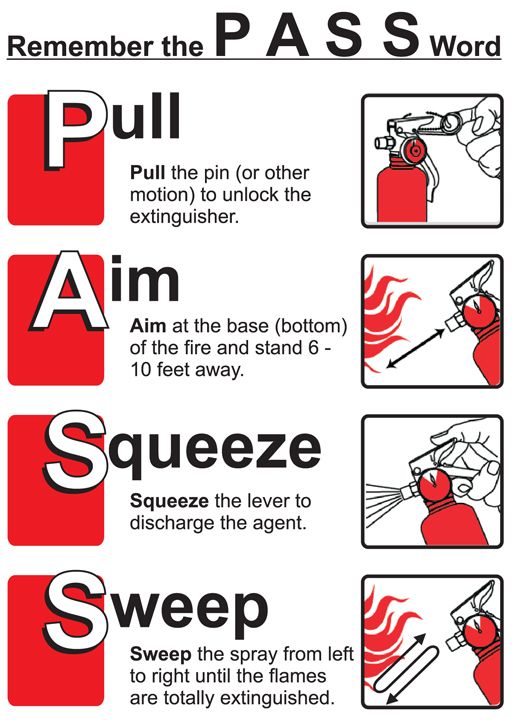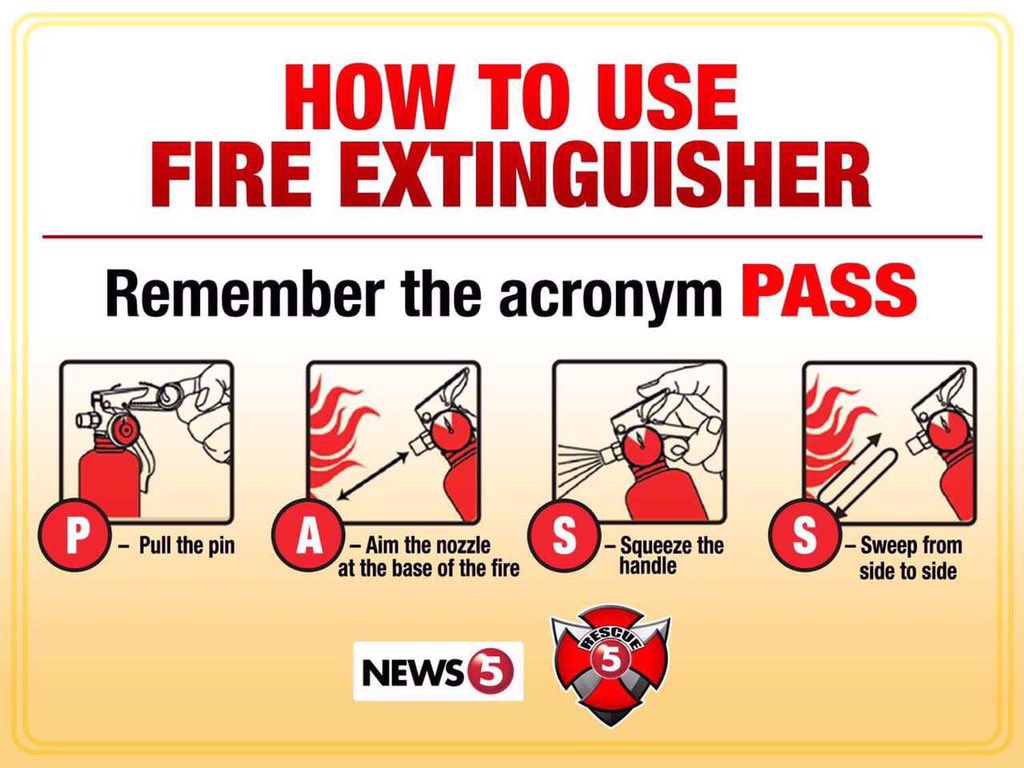How to fire a therapist
How to 'Break Up' with Your Therapist
The relationship you have with your therapist may be one of the most important in your life. So how do you end things when it’s time?
Going into therapy is an incredible act of self-care — and often an essential step toward wellness.
Whether you began counseling to learn tools for dealing with anxiety or to get clarity on a rocky relationship, chances are you set out to find a therapist who made you feel seen, cared for, and understood.
If so, your intuition was spot-on. Recent research shows that the relationship you have with your therapist (also known as the therapeutic alliance) is one of the biggest indicators of effective treatment.
Still, at some point you may feel like it’s time to end this therapeutic alliance for one reason or another.
The question then becomes, “How do I ‘break up’ with my therapist?”
You might be tempted to stop showing up for appointments, but how you end all relationships is just as vital as how you start them. In fact, how you stop counseling can be a helpful practice for what takes place outside of your therapist’s office.
Collaboration, responsiveness, sensitivity to a client’s sexual orientation and spiritual beliefs — all are key to a successful client-therapist relationship.
Maybe you indeed found a beneficial relationship with a therapist, but you now feel ready to tackle life’s complexities without their assistance. Or perhaps you feel your therapist doesn’t get your cultural or gender identity, and you want to switch to a different one.
“This is intensely personal work and you won’t fit with every therapist out there. Trust your gut,” says Susan Mecca, PhD, a psychologist, organizational consultant, and the author of “The Gift of Crisis: Finding Your Best Self in the Worst of Times.”
Whatever the reason may be, the decision to end therapy or switch therapists is entirely in your hands.
1. Figure out the ‘why’ behind it
Your reason for ending therapy could run the gamut from thinking “my therapist is frustrated with me” to feeling abandoned by therapists — either with the one you have or historically.
Maybe therapy is no longer useful. Or perhaps it seems that something is just… off.
Joanne King, LMHC, and author of “Too Good To Go, Too Bad To Stay: 5 Steps To Finding Freedom From a Toxic Relationship,” suggests asking yourself:
- Do I feel that my therapist is empathetic? Present? Competent?
- Do I feel judged?
- Did I clearly state my goals? If so, am I moving toward them?
Getting clear around your choice will help you determine what you want in a therapist, either now or in the future. It’ll also help you prepare to discuss your decision with your therapist.
2. Talk with your therapist
Ideally, you would navigate the feelings that arise when ending therapy with your therapist. But this may sound strange to some, if not impossible. And yet, if you have a good relationship with your therapist, this may be exactly the strategy you should take.
“Ending therapy should be as intentional as starting therapy,” says Charna Cassell, MFT, a psychotherapist and the founder of the Center for Passionate Living. “It’s an opportunity to evaluate any established patterns around endings, such as how you’ve left jobs and relationships in the past. A good therapist can also help you process your decision.”
“It’s an opportunity to evaluate any established patterns around endings, such as how you’ve left jobs and relationships in the past. A good therapist can also help you process your decision.”
That said, if there’s been an ethical violation by your therapist, you may want to terminate the relationship immediately and report the misconduct to the licensing board or another therapist. These include:
- a sexual advance
- a violation of your boundaries
- a breach of confidence
3. Or send an email or text
Perhaps you’ve had two sessions with a new therapist and the connection isn’t there. It could be that their style of interaction or approach doesn’t resonate with you.
If this is the case, “You don’t owe your therapist a long or involved explanation, just the courtesy of a goodbye,” Mecca says. She suggests:
- canceling your next appointment with appropriate notice, or
- sending a message that says, “I’ve decided I’d like to try a different approach with another therapist but appreciate your time and thoughts”
King also recommends this tactic for those who aren’t comfortable with confrontation. “A good therapist would be happy to read and respond to your email or text. The end of a therapeutic relationship is about the client — not the therapist,” she says.
“A good therapist would be happy to read and respond to your email or text. The end of a therapeutic relationship is about the client — not the therapist,” she says.
4. Be honest
“Therapy is about personal growth,” Mecca says. “If you feel that your therapist doesn’t understand the issue or isn’t helping you gain new insights into a problem, tell them.”
King agrees. “It’s important to be able to share why you are leaving,” she says. “Part of the work in therapy is learning how to show up in life and to feel empowered to say ‘this isn’t working for me’ or ‘we’re not meeting my goals.’”
5. Consider the ‘conscious goodbye’
“We live in a ‘see you later’ culture that’s afraid of goodbyes and avoids them at all costs,” Cassell says. A conscious goodbye, however, can help you see what you may have accomplished throughout therapy. This can be validating and energizing.
“I encourage ‘conscious goodbyes’ where clients take time to assess where they were when they started and where they are now,” Cassell says. “If they’re leaving because we’re not a good fit, we examine the growth they want to find with a new therapist.”
“If they’re leaving because we’re not a good fit, we examine the growth they want to find with a new therapist.”
Cassell says she also practices saying the word “goodbye” with some clients. “This is profoundly helpful for people who have trouble with endings, or who have held on to relationships past their expiration date.”
6. Have a plan
Several mental health conditions may require ongoing care. For example, if you’re in therapy for depression and it’s continuing to affect your day-to-day functioning, you might want to line up a new therapist before ending your current relationship.
Similarly, if you choose to end your therapeutic relationship, it’s important to continue taking your medications. This will help you avoid withdrawal or the worsening of symptoms.
7. Discuss ending therapy at the get-go
King spends her first two sessions with clients identifying and rating their goals on a scale of 1 to 10 in a method she calls “brain spotting.” Once they’ve reached zero, their work together is considered finished.
While not every approach may be as clear cut, you might consider discussing how you and your therapist will end your relationship when you start. This, too, can be a valuable practice for how you choose to manage, and conclude, other relationships.
It’s common to worry about how a therapist will react to a client’s decision to end the relationship. But “a good therapist always has their clients’ best interests in mind, first and foremost,” says King. “This is dictated in our code of ethics.”
If your therapist gives you a hard time or forces you to stay, consider it a “huge red flag,” King says. She also suggests that you should, again, be honest — and provide feedback.
“It helps us become better therapists,” King says. “Plus, when you communicate what did and didn’t work for you, you’re helping others.”
“I normalize endings,” says Cassell. She also notes that she recognizes that she may “walk with a person for only part of their journey before they need something else. ” In other words, she doesn’t take it personally.
” In other words, she doesn’t take it personally.
“I love goodbyes and try to teach clients not to fear them,” Cassell says. “I also acknowledge the courage it takes to initiate them.”
What all agree on is that you should never ghost your therapist. “We’re human beings too,” King says. “We worry and care about people — that’s our job.”
There are multiple reasons to go into therapy — and there are just as many reasons to end it.
If you feel it’s time to “break up” with your therapist, you can do so in a diplomatic way. Consider outlining your reasons so that you have a handle on your motivation. Open up a dialogue with your therapist. Be kind and honest.
Additionally, if you’re ready to switch therapists, know there are resources available. If you’re looking for a more culturally sensitive therapist, for example, you can check out:
- Ayana
- African American Therapists Directory
- Inclusive Therapists
- Therapy for Latinx
- National Queer and Trans Therapists of Color Network
- Therapy for Black Girls
- Black Female Therapists
Your current therapist can also offer referrals.
Above all, keep in mind that “you drive the therapy process,” says Mecca. “Listen to your heart — or your gut — about what feels right to you.” That, after all, is a mark of therapy in action.
How To Fire Your Therapist – Willow Tree Counselling
I work in a profession where my goal is to repeatedly get myself fired by my clients. If I’ve done my job correctly, I will have helped clients help themselves, ultimately rendering my role as a counsellor obsolete.
Sometimes this takes one session, often more like 6-12, and occasionally this process is a longer-term one. Ultimately, however, my goal is the same.
So, in other words, firing your therapist is a healthy step at the end of the counselling process and there are times when you may find it necessary to fire your counselor prematurely if you feel the counseling is not helpful.
Beware of any counsellor who tells you that the counselling process is indefinite, that you may never get better or that you will always need them in your lives. You may have even had the unfortunate experience of trying to conclude counselling only to be told that by stopping you were “avoiding your issues” or “sabotaging” your therapy. Maybe you are avoiding or sabotaging–possibly missing the chance to grow emotionally–but even if this were true, it’s your right and your choice. It’s my belief that clients have the right to quit counselling at any time, for any reason and yes, by doing so, some issues may remain unaddressed or unresolved.
You may have even had the unfortunate experience of trying to conclude counselling only to be told that by stopping you were “avoiding your issues” or “sabotaging” your therapy. Maybe you are avoiding or sabotaging–possibly missing the chance to grow emotionally–but even if this were true, it’s your right and your choice. It’s my belief that clients have the right to quit counselling at any time, for any reason and yes, by doing so, some issues may remain unaddressed or unresolved.
Talk Strategy
To help you get the most out of your counselling experience, communicate with your therapist about what is important for you to talk about any changes that you would like to make in your life. What are your goals? Put forth any ideas you may have about how to work towards them and get your counsellor’s input too.
Together, come up with a plan on how to get there. Are there things that you can do outside the sessions to carry on with your therapy and bring it into your life?
Have a discussion with your counsellor about how you will know that progress is being made. In my practice I use an outcome rating questionnaire which helps to ensure that we are on-track with therapy and that it is leading somewhere. Other signs of progress include:
In my practice I use an outcome rating questionnaire which helps to ensure that we are on-track with therapy and that it is leading somewhere. Other signs of progress include:
- You think about your counselling in between sessions and see connections between topics you’ve discussed in counselling and yourself.
- Your newfound knowledge and self-understanding changes some of the choices you make in your life, big and small.
- The issue(s) that you came to counselling for is feeling resolved, or is being addressed in a meaningful way.
- You forget that you have an upcoming counselling appointment until you receive the reminder from your therapist.
- The general quality of your world is changing: better people, better relationships, better opportunities, better options. You also see evidence of positive change.
- You feel shocked when you reflect on what your life used to be like and how far you’ve come.

- While you may be nervous about leaving counselling, you are feeling empowered to make changes on your own, or maintain the gains that you’ve made in therapy. You can problem solve bumps along the way.
- You come into a session and you feel like you don’t have anything to say.
- You take ownership for the progress you’ve made.
Saying Goodbye
This can happen for several reasons:
- Dissatisfaction: you are unhappy with your therapist or your therapy experience
- Circumstantial: you or your therapist is moving away, you have gone through a major life transition, or other life circumstances are getting in the way of you being able to attend appointments
- Therapy has been successful: you’re feeling better and your reasons for coming for therapy have been resolved or adequately addressed.
How To Say Goodbye…When You’re Dissatisfied
Most people will cancel their next appointment or fail to show up. Often a reason is not provided to the therapist.
Often a reason is not provided to the therapist.
Clients should not feel obligated to provide a reason to the counsellor, although when you do, several things could potentially occur:
- You have a fruitful discussion which helps you to resolve issues in a meaningful way. Sometimes this results in you continuing with the counsellor, sometimes not.
- The therapist listens to your feedback and ultimately makes changes in their practice that could benefit future clients.
- You feel relieved to have expressed unresolved concerns.
- Yes, there is the potential that the therapist could become defensive or blame you for your negative experience. If so, it’s definitely time to find a new counsellor!
If you do not want to return to therapy, please cancel any follow-up appointments you may have. It wastes the therapist’s time when a client does not show up for a scheduled appointment and prevents other clients from using this time. Even though I’ve discussed the potential merits of giving the therapist feedback, this is not necessary. Stating “I need to cancel my next appointment” is enough. If the therapist asks if you would like to reschedule, “not at this time” is a perfectly acceptable response. If you fear conflict, use email instead.
Even though I’ve discussed the potential merits of giving the therapist feedback, this is not necessary. Stating “I need to cancel my next appointment” is enough. If the therapist asks if you would like to reschedule, “not at this time” is a perfectly acceptable response. If you fear conflict, use email instead.
How to Say Goodbye…When You’re Happy as a Clam
Whenever possible, it’s great to schedule a final session, even if you’re feeling good to go. This is beneficial in several ways:
- You and your counsellor review and consolidate your gains; it’s encouraging to see how far you’ve come!
- You have the opportunity to discuss what worked well in your counselling experience, and any aspects of the therapy that weren’t helpful.
- You discuss a plan for the future: specifically how you will stay well and what to do if you hit a snag along the way.
Endings, like beginnings, are very important and are a process that should start as soon as the therapy begins.
Dismissal of medical workers at the initiative of the employer
Dismissal of workers against their own will is always a conflict situation, and the medical field is no exception. Judicial practice knows many cases of dismissals of doctors and nurses, which were later recognized by the court as illegal. Therefore, it is important for both the employer and the health worker to know about their rights and obligations upon dismissal at the initiative of the management, as well as the subtleties of the dismissal procedure for various reasons. In our article, we talk in detail about when and for what a health worker can be fired, what actions of the authorities are unacceptable, and what rights of the employee must be respected.
Legal regulation of the dismissal of a medical worker at the initiative of the employer
The Labor Code of the Russian Federation (hereinafter referred to as the Labor Code of the Russian Federation) and other legislative acts do not contain any special rules regarding the grounds and procedure for the dismissal of medical workers. Therefore, in these matters, one should be guided by the general rules on dismissal, in particular, if we are talking about dismissal at the initiative of the employer - Article 81 of the Labor Code of the Russian Federation. This article lists those situations when the management of a clinic, hospital, medical center can forcibly terminate an employment contract with a doctor or nurse without asking their opinion, namely:
Therefore, in these matters, one should be guided by the general rules on dismissal, in particular, if we are talking about dismissal at the initiative of the employer - Article 81 of the Labor Code of the Russian Federation. This article lists those situations when the management of a clinic, hospital, medical center can forcibly terminate an employment contract with a doctor or nurse without asking their opinion, namely:
- Liquidation of the organization or termination of the activities of the individual entrepreneur (clause 1, part 1, article 81 of the Labor Code of the Russian Federation).
- Reduction in the number or staff of employees (clause 2, part 1, article 81 of the Labor Code of the Russian Federation).
- Inconsistency of the health worker with the position held or the work performed due to lack of qualifications (clause 3, part 1, article 81 of the Labor Code of the Russian Federation).
- Repeated non-fulfillment by an employee of his labor duties without good reason in the presence of a previously imposed disciplinary sanction (clause 5, part 1, article 81 of the Labor Code of the Russian Federation).

- One-time gross violation of labor duties by a health worker (absenteeism, appearing at work in a state of intoxication, disclosure of medical secrets, etc.) (clause 6, part 1, article 81 of the Labor Code of the Russian Federation).
- Presentation of false documents to the employer during employment (clause 11, part 1, article 81 of the Labor Code of the Russian Federation).
- Loss of confidence in an employee serving valuables as a result of his committing guilty acts (clause 7, part 1, article 81 of the Labor Code of the Russian Federation).
An unsatisfactory test result serves as a separate ground for dismissal if the health worker was hired on probation (Article 71 of the Labor Code of the Russian Federation).
Please note that it is possible to dismiss any employee, including a physician, strictly on the grounds provided for by the Labor Code of the Russian Federation (with the exception of remote workers). “Inventing” other reasons for dismissal is unacceptable. Termination of an employment contract for each of the grounds provided for by the Labor Code of the Russian Federation must occur according to a certain algorithm, in compliance with the established prohibitions and restrictions, otherwise, it may be declared illegal at the request of the employee.
Termination of an employment contract for each of the grounds provided for by the Labor Code of the Russian Federation must occur according to a certain algorithm, in compliance with the established prohibitions and restrictions, otherwise, it may be declared illegal at the request of the employee.
Next, let's take a closer look at each of them.
Dismissal of health workers due to the liquidation of the organization
Termination of the activities of a medical organization (individual entrepreneur) in which a health worker is employed is an unconditional basis for the dismissal of any workers, even those belonging to socially vulnerable categories (pregnant women, single mothers, etc.). It would seem that everything is simple, but in practice there are many controversial situations both in terms of the procedure and the consequences of dismissal for doctors and nurses.
First, it should be borne in mind that for dismissal on this basis, it is not enough just a declarative statement from the head about the termination of activities and the closure of the clinic. It is necessary to adopt, in accordance with the procedure established by law, the decision of the medical organization to terminate activities and the actual actual termination of activities (paragraph 28 of the Decree of the Plenum of the Supreme Court of the Russian Federation dated March 17, 2004 No. 2 “On the application by the courts of the Russian Federation of the Labor Code of the Russian Federation”). The activity may also be terminated due to refusal to renew the license for medical activities.
It is necessary to adopt, in accordance with the procedure established by law, the decision of the medical organization to terminate activities and the actual actual termination of activities (paragraph 28 of the Decree of the Plenum of the Supreme Court of the Russian Federation dated March 17, 2004 No. 2 “On the application by the courts of the Russian Federation of the Labor Code of the Russian Federation”). The activity may also be terminated due to refusal to renew the license for medical activities.
In addition, in judicial practice, there is a position according to which this is not enough, but it is necessary to perform all other actions related to the liquidation of the organization (appointment of a liquidation commission, setting the timing and procedure for liquidation, publishing a message on liquidation in the media, notifying creditors of liquidation , making an entry in the Unified State Register of Legal Entities about the presence of a legal entity in the stage of liquidation (Determination of the Second Cassation Court of General Jurisdiction dated May 26, 2020 in case No. 88-8163 / 2020).0003
88-8163 / 2020).0003
Please note that it is impossible to dismiss on this basis if the rights and obligations of the organization are transferred to another person in the order of succession, that is, it is unacceptable to “disguise” the reorganization as liquidation. But if only a branch or a separate subdivision is closed in any locality, but the parent organization continues to work, then the dismissal should be carried out precisely in connection with the liquidation of the organization, and not as a result of the employee’s refusal to be transferred to another locality (part 4 of article 81 Labor Code of the Russian Federation; definition of the Armed Forces of the Russian Federation of 06/24/2019No. 83-KG19-4).
Before issuing a dismissal order in connection with the liquidation of a medical organization, its head is obliged to notify employees 2 months in advance (part 2 of article 180 of the Labor Code of the Russian Federation) and the employment service (clause 2 of article 25 of the Law of the Russian Federation dated 04/19/1991 No. 1032-1 “On employment of the population”). At the same time, an industry agreement or a collective agreement may also establish a different, longer period for notification. Advance notice of dismissal is necessary so that the health worker can resolve the issue of further employment during this time.
1032-1 “On employment of the population”). At the same time, an industry agreement or a collective agreement may also establish a different, longer period for notification. Advance notice of dismissal is necessary so that the health worker can resolve the issue of further employment during this time.
of the Labor Code of the Russian Federation allows you to terminate the employment contract even ahead of schedule if the employee agrees.
Upon dismissal, in addition to wages and vacation pay, a medical worker must pay a severance pay in the amount of one average salary (part 1 of article 178 of the Labor Code of the Russian Federation), and if the employment contract is terminated ahead of schedule, then additional compensation in the amount of average earnings for the period , remaining until the end of the term (part 3 of article 180 of the Labor Code of the Russian Federation). In exceptional cases, when the employment of a dismissed employee is delayed, the employer must pay him the average earnings for the second and third months from the date of dismissal (parts 2, 3 of article 178 of the Labor Code of the Russian Federation).
Reduction in the number or staff of medical workers
Reduction in the number or staff of workers is the basis for dismissal, which very often causes dissatisfaction among employees and, as a result, litigation. This is also relevant for the medical field of activity, which is periodically subject to reforms.
As a rule, layoffs are a necessary measure for the employer, for example, when the number of patients and the volume of work decreases, the closure of clinics and hospitals. Sometimes a reduction can be caused by the automation of a process.
Downsizing means a reduction in the number of employees of one position, for example, in a hospital, the number of nurses is reduced from 15 to 10. Reduction in staff means the complete exclusion of any staff units from the staff list and, as a result, the dismissal of persons who held these positions. For example, the position of a teenage therapist is excluded from the staff list.
The head of the medical organization is not required to justify the reasons for the reduction, however, as in the liquidation of the organization, the reduction should in no case be fictitious. In the event of a dispute with an “offended” employee, the employer will be required to prove that the reduction in the number of employees or staff is real. So, if after the dismissal of a doctor, the hospital management immediately announces the search for a new employee for a similar position, the court recognizes the dismissal of the former employee as illegal.
In the event of a dispute with an “offended” employee, the employer will be required to prove that the reduction in the number of employees or staff is real. So, if after the dismissal of a doctor, the hospital management immediately announces the search for a new employee for a similar position, the court recognizes the dismissal of the former employee as illegal.
Dismissal on the grounds under consideration is a rather complicated and time-consuming procedure. It is very important to observe it in all its subtleties, otherwise the risk of recognizing the dismissal as illegal is extremely high.
Firstly, the dismissed medical worker must be notified of the upcoming termination of the employment contract 2 months in advance (part 2 of article 180 of the Labor Code of the Russian Federation), otherwise the dismissal may be declared illegal (see, for example, the appeal ruling of the Nizhny Novgorod Regional Court dated 04.06. 2019in case No. 33–5728/2019).
Secondly, it is necessary to notify the employment service and the trade union, if any, within the same period, and if a mass dismissal of medical workers is expected, then a notice must be sent 3 months in advance (part 1 of article 82 of the Labor Code of the Russian Federation).
Thirdly, before laying off a medical worker, the clinic management is obliged to offer him another available job in the area, either in a similar position, or in a lower or lower paid position - the main thing is that the state of health of the worker allows him to perform such work (part 3 article 81 of the Labor Code of the Russian Federation). The employer is obliged to offer vacancies in other localities only if it is provided for by the collective agreement, agreements, labor contract.
Fourth, as in the case of the liquidation of an organization, each laid-off employee must be paid a severance pay in the amount of one average monthly salary (part 1, article 178 of the Labor Code of the Russian Federation).
We must not forget that not all employees can be laid off. A number of workers are generally not subject to reduction (Article 261 of the Labor Code of the Russian Federation). They are:
- Pregnant women.
- Women with children under 3 years of age.

- Single mothers, as well as fathers, guardians and other persons raising children without a mother, with children under 14 years of age or with a disabled child under 18 years of age.
- The sole breadwinner of a disabled child under 18 years of age, or a child under 3 years of age, if the family has three or more young children and the other parent does not work.
In addition, a medical worker cannot be made redundant if he has the pre-emptive right to remain at work (Article 179 of the Labor Code of the Russian Federation). Persons with higher qualifications and labor productivity (level of knowledge, skills, professional skills, work experience, availability of incentives and disciplinary sanctions) have this right. If it is impossible to choose according to this criterion (for example, employees have equal characteristics), then the following factors are taken into account as giving preferences:
- The employee has two or more dependent children.

- The worker is the only breadwinner in the family.
- An employee has an injury or occupational disease while working for the employer.
- The employee is sent for advanced training on the job.
- The employee is disabled during the Second World War and other military operations.
- The preferential right to leave is provided for by a collective agreement or by law.
If the dismissal procedure is even slightly violated, then the likelihood that the employee will have to be reinstated by a court decision is very high (see, for example, the decision of the Suleiman-Stalsky District Court of the Republic of Dagestan No. No. 2-127/2020).
Inconsistency of the employee with the position held
Clause 3, part 1, art. 81 of the Labor Code of the Russian Federation provides for such a basis for the dismissal of an employee as his failure to pass certification to confirm his compliance with his position. The certification referred to in this paragraph should be distinguished from voluntary certification to obtain a qualification category, which is carried out in accordance with the Order of the Ministry of Health of Russia dated April 23, 2013 No. 240n “On the Procedure and Terms for Medical Workers and Pharmaceutical Workers to Pass Certification to Obtain a Qualification Category ".
240n “On the Procedure and Terms for Medical Workers and Pharmaceutical Workers to Pass Certification to Obtain a Qualification Category ".
The employer has the right, on his own initiative, to assess the level of knowledge, skills and professional skills, experience of medical workers and their suitability for their position. To do this, the medical organization must adopt its own regulation on the procedure for conducting certification and create a special certification commission.
The main criteria for certification are the volume and complexity of the employee's work, the results achieved in the performance of official duties, the quality and degree of independence of the work performed, responsibility for the task assigned, professionalism. Certification should not be limited to simple testing, but must necessarily take into account the level of education, advanced training, experience, compliance with qualification requirements and professional standards. If a health worker fully complies with all the requirements for the level of education for his specialty, regularly improves his qualifications, passes voluntary certification for the assignment of a qualification category, then it will be extremely difficult to recognize him as inappropriate for his position on the basis of employer certification. The court may recognize such certification as illegal, and the doctor may be reinstated at work (see, for example, the decision of the Kirovsky District Court of Irkutsk, Irkutsk Region, dated 09.11.2018 in case No. 2-3807/2018).
The court may recognize such certification as illegal, and the doctor may be reinstated at work (see, for example, the decision of the Kirovsky District Court of Irkutsk, Irkutsk Region, dated 09.11.2018 in case No. 2-3807/2018).
Dismissal on this basis is allowed in the same way as in case of reduction, only if it is impossible to transfer the employee with his written consent to another job available to the employer (either to a vacant position or job corresponding to the employee’s qualifications, or to a vacant lower position or lower-paid job ), which the employee can perform taking into account his state of health (part 3 of article 81 of the Labor Code of the Russian Federation).
Repeated non-performance by an employee of his labor duties without good reason in the presence of a previously imposed disciplinary sanction
Another reason for dismissal at the initiative of the employer is the failure of a medical worker to fulfill his/her job duties. To do this, several conditions must be met at the same time:
- Such non-fulfillment has no valid reasons
- Non-fulfillment of labor duties is repeated, that is, it was allowed before.

- There is a previous disciplinary sanction.
It should be borne in mind that if a previously imposed penalty was canceled, for example, by a court decision, then it can no longer be taken into account when dismissing on this basis and the violation will not be considered repeated.
The management of a medical organization must very clearly record in orders to bring medical workers to disciplinary responsibility what kind of violation was committed, otherwise such a penalty will not be taken into account by the court when considering a case on the legality of dismissal (see, for example, the decision of the Central District Court of the city of Moscow). Tver dated 01/22/2020 in case No. 2-196/2020). In addition, the manager is obliged to request written explanations from the employee and only after that draw conclusions about his guilt.
Interestingly, a disciplinary sanction, up to and including dismissal, can be imposed on a medical worker not only for failure to fulfill his duties in treating patients, but also for violating the norms of medical ethics. An example of such a misconduct is considered in the appeal ruling of the Moscow City Court dated 06/08/2018 in case No. 33-25162/18. The surgeon of the medical center, who already has two active disciplinary sanctions in the form of a reprimand, instead of receiving patients, ate in the staff room, while the patient was waiting for her outside the office door for more than 20 minutes. To the remark of the head of the department about the inadmissibility of such behavior and a request to explain the reason for the failure to provide medical care to the patient, the doctor went out into the corridor and in the presence of the staff of the clinic and patients began to shout loudly using insulting expressions that she would not follow the orders of the head of the department, since he did not have a medical diploma . After these events, the patient, who was waiting for an appointment, actually refused treatment and left the clinic, because she considered the doctor's behavior inadequate. On this fact, a meeting of the medical commission was held in a medical organization, which stated a violation by the doctor of the requirements of Part 1 of Art.
An example of such a misconduct is considered in the appeal ruling of the Moscow City Court dated 06/08/2018 in case No. 33-25162/18. The surgeon of the medical center, who already has two active disciplinary sanctions in the form of a reprimand, instead of receiving patients, ate in the staff room, while the patient was waiting for her outside the office door for more than 20 minutes. To the remark of the head of the department about the inadmissibility of such behavior and a request to explain the reason for the failure to provide medical care to the patient, the doctor went out into the corridor and in the presence of the staff of the clinic and patients began to shout loudly using insulting expressions that she would not follow the orders of the head of the department, since he did not have a medical diploma . After these events, the patient, who was waiting for an appointment, actually refused treatment and left the clinic, because she considered the doctor's behavior inadequate. On this fact, a meeting of the medical commission was held in a medical organization, which stated a violation by the doctor of the requirements of Part 1 of Art. 73 of the Law of November 21, 2011 No. 323-FZ “On the Fundamentals of Protecting the Health of Citizens in the Russian Federation”, as well as the Code of Professional Ethics of a Doctor of the Russian Federation. Having confirmed the legality of imposing previously announced disciplinary sanctions, the court recognized the dismissal as lawful.
73 of the Law of November 21, 2011 No. 323-FZ “On the Fundamentals of Protecting the Health of Citizens in the Russian Federation”, as well as the Code of Professional Ethics of a Doctor of the Russian Federation. Having confirmed the legality of imposing previously announced disciplinary sanctions, the court recognized the dismissal as lawful.
One-time gross non-performance by an employee of his labor duties
The head of a medical organization can dismiss a medical worker even if only one violation of labor discipline is committed, if it is gross. The Labor Code of the Russian Federation includes the following offenses among those:
1. Appearance at the workplace in a state of alcoholic or other intoxication. It is not so easy to dismiss on this basis: the hospital management must take care to have evidence that the doctor or nurse was really drunk. Documents confirming this fact, according to the explanations contained in judicial practice, can be: a medical report, readings of technical measuring devices for blood alcohol, testimonies, internal acts, memorandums, etc. (paragraph 42 of the Decree of the Plenum of the Supreme Court of the Russian Federation No. 2 ; Appellate ruling of the Moscow City Court dated June 28, 2018 in case No. 33-28132/2018). At the same time, a medical examination for the state of alcoholic intoxication can be carried out only with the consent of the employee himself (part 3 of article 20 of the Law of November 21, 2011 No. 323-FZ).
(paragraph 42 of the Decree of the Plenum of the Supreme Court of the Russian Federation No. 2 ; Appellate ruling of the Moscow City Court dated June 28, 2018 in case No. 33-28132/2018). At the same time, a medical examination for the state of alcoholic intoxication can be carried out only with the consent of the employee himself (part 3 of article 20 of the Law of November 21, 2011 No. 323-FZ).
An explanation must be taken from the health worker responsible for such violation of labor discipline. The reasons for appearing in a state of intoxication at the workplace can be very different: from celebrating a birthday to taking an alcohol-containing medication. Even if the reasons for intoxication are not valid, the employer is not obliged to dismiss the employee, but has the right to do so. When deciding on dismissal, one should take into account the moral character of the employee as a whole, his attitude to work, the degree of intoxication and the circumstances of the offense.
2. Absenteeism or absence from work for more than 4 hours without a valid reason. It is not always easy to qualify absence from work as absenteeism. So, for example, if a health worker was absent for exactly 4 hours or less, then the court will most likely take the side of the worker - he cannot be dismissed on this basis. In addition, it must be taken into account that 4 hours are counted in a row. In the case when an employee was absent for more than 4 hours during one working day, but not in a row (for example, he was away three times for two hours, but after each time he returned to the workplace for 10 minutes), he cannot be dismissed for absenteeism. If the contract does not specify the daily length of the working day, then absenteeism cannot be counted either. Among the valid reasons for absence from work, judicial practice includes: contacting a doctor even in the absence of a certificate of incapacity for work, including if such an appeal was related to the provision of medical care to a minor child; carrying out emergency repairs in the apartment; participation in a court session as a plaintiff or defendant; the absence of an order from the employer to start work on that particular day; lack of access to the workplace.
3. Disclosure of legally protected secrets.
Any employee can be fired for disclosing a legally protected secret. In relation to medical workers, this is usually a medical secret, which all doctors and nurses are required to keep. Medical secrecy consists of information about the fact that a citizen applied for medical care, his state of health and diagnosis, other information obtained during his medical examination and treatment (clause 1, article 13 of the law of November 21, 2011 No. 323-FZ "On the basics of health care citizens in the Russian Federation). In carrying out his activities, a health worker is not entitled to disclose this information, including after the death of a citizen, with some exceptions provided for in paragraphs 3, 4 of Art. 13, part 3 of Art. 22, part 5 of Art. 67 of Law No. 323-FZ.
For the disclosure of medical secrets, in addition to disciplinary action in the form of dismissal, a medical worker can be brought to administrative (Art. 13.14, part 1 of Art. 284 of the Code of Administrative Offenses of the Russian Federation), criminal (Art. 1 part 2 article 151 of the Criminal Code of the Russian Federation) and civil liability (compensation for harm, including moral).
13.14, part 1 of Art. 284 of the Code of Administrative Offenses of the Russian Federation), criminal (Art. 1 part 2 article 151 of the Criminal Code of the Russian Federation) and civil liability (compensation for harm, including moral).
Dismissal for disclosure of information constituting a medical secret is possible regardless of whether the employment contract with the health worker stipulates his duty to keep it. So, a doctor of one medical organization, believing that numerous violations are allowed in this organization, sent a letter to the reception of the President of the Russian Federation and attached copies of the medical records of several patients. In connection with this fact, a commission was created in the medical organization, which stated that the plaintiff had violated the requirements of Art. 13, 19, 73 of the Law "On the Fundamentals of Protecting the Health of Citizens in the Russian Federation" and recommended that the head physician terminate the employment contract with her. During the trial, it turned out that two patients, whose medical documents were attached to the doctor's appeal, did not give their consent to this. Disagreeing with the decision of the court of first instance, in the appeal the plaintiff referred, in particular, to the fact that the obligation to not disclose medical secrets should be separately recorded either in the employment contract or in the job description. The Judicial Collegium for Civil Cases of the Oryol Regional Court considered this argument untenable and pointed out that the doctor’s diploma issued to the plaintiff confirmed the fact that she had taken the doctor’s oath and thereby assumed the obligation to preserve medical secrecy (Appeal ruling of the Oryol Regional Court dated 28.11. 2013 in case No. 33-2608/2013).
During the trial, it turned out that two patients, whose medical documents were attached to the doctor's appeal, did not give their consent to this. Disagreeing with the decision of the court of first instance, in the appeal the plaintiff referred, in particular, to the fact that the obligation to not disclose medical secrets should be separately recorded either in the employment contract or in the job description. The Judicial Collegium for Civil Cases of the Oryol Regional Court considered this argument untenable and pointed out that the doctor’s diploma issued to the plaintiff confirmed the fact that she had taken the doctor’s oath and thereby assumed the obligation to preserve medical secrecy (Appeal ruling of the Oryol Regional Court dated 28.11. 2013 in case No. 33-2608/2013).
Issues of observance of medical confidentiality are covered in more detail in our articles “Medical confidentiality and the patient's right to information about his health”, “Grounds and procedure for disclosing information constituting medical confidentiality”, “Disclosure of information constituting medical confidentiality after the death of a patient”.
4. Violation of labor protection rules, if this caused serious consequences.
The duties of medical workers include obligatory observance of labor protection rules. Neglect of these rules can lead to serious consequences for the doctor himself, as well as for his colleagues and patients. First of all, we are talking about the refusal to use personal protective equipment or their misuse, as well as violations of safety regulations when using medical equipment (for example, admission to the premises of third parties not related to the work of medical staff; use of medical equipment for other than its intended purpose; leaving working devices and devices unattended, storing flammable and combustible substances near electric heaters (alcohol, cotton wool, etc.)). The head has the right to apply a disciplinary sanction to the health worker for such violations, up to dismissal, if they caused harm to employees, patients, property. As in the case of other disciplinary grounds for dismissal, it is necessary to take explanations from the violating health worker.
5. Theft, embezzlement, property damage and loss of trust.
The employer also has the right to dismiss a medical worker for theft (theft, embezzlement) committed at the place of work or damage to the property of the hospital (clinic), employees or other persons. However, it is unacceptable to do this simply by the very fact of the loss of property: you must contact the police with a corresponding statement. It is possible to dismiss on this basis only after the guilt of the employee is established by a court verdict or a decision of a judge (a body, an official considering cases of administrative offenses), which has entered into force (paragraph 44 of the Decree of the Plenum of the Supreme Court of the Russian Federation dated March 17, 2004 No. 2). You can make a dismissal within a month from this date.
Please note that a healthcare worker can also be fired for embezzlement committed outside the workplace, but only in cases where the imposed punishment prevents further work (for example, imprisonment) or if the crime committed led to a loss of confidence in the healthcare worker (applies to only to those who directly serve material assets, such as expensive equipment or medicines). In this case, the dismissal will be carried out under a separate paragraph of paragraph 7 of part 1 of Art. 81 of the Labor Code of the Russian Federation. Usually, cashiers, supply managers, head nurses, etc. are referred to as employees directly servicing commodity or other material values, and in practice contracts are concluded with such employees on full individual liability. Recall that the List of persons with whom the employer can conclude such contracts is determined by the Decree of the Ministry of Labor of Russia No. 85.
In this case, the dismissal will be carried out under a separate paragraph of paragraph 7 of part 1 of Art. 81 of the Labor Code of the Russian Federation. Usually, cashiers, supply managers, head nurses, etc. are referred to as employees directly servicing commodity or other material values, and in practice contracts are concluded with such employees on full individual liability. Recall that the List of persons with whom the employer can conclude such contracts is determined by the Decree of the Ministry of Labor of Russia No. 85.
Provision of false documents for employment
In our article on the conclusion of an employment contract with a medical worker (Employment contract with a medical worker), we dwelled in sufficient detail on the issue of employment of doctors and nurses, including what documents should be them presented to the employer at the conclusion of the employment contract. Taking into account the high level of complexity of the work performed by physicians, increased responsibility, strict requirements for their professional training, the legislator has established a rather extensive list of documents that a medical worker is required to present to his superiors. First of all, we are talking about education documents (diplomas, accreditation certificates, certificates). In addition, a work book, a passport, an insurance certificate of compulsory medical insurance, military registration documents are presented. When passing a medical examination and obtaining permission to work with narcotic and psychotropic drugs, certificates of no criminal record and medical certificates of health status are also obtained.
First of all, we are talking about education documents (diplomas, accreditation certificates, certificates). In addition, a work book, a passport, an insurance certificate of compulsory medical insurance, military registration documents are presented. When passing a medical examination and obtaining permission to work with narcotic and psychotropic drugs, certificates of no criminal record and medical certificates of health status are also obtained.
If suddenly in the course of employment it turns out that any of these documents turned out to be forged, the employer has the right to unconditionally terminate the employment contract with a medical worker unilaterally under clause 11, part 1, art. 81 of the Labor Code of the Russian Federation).
Failure to pass the probationary period
Another reason for the dismissal of a medical worker at the initiative of the employer may be an unsatisfactory test result.
Recall that an employment contract with a medical worker can establish a test for up to 3 months (for heads of medical organizations and their deputies, heads of branches, representative offices or other separate structural divisions of organizations up to 6 months). This is an employer's right, not an obligation. The probationary period is needed in order to make sure that the accepted employee meets the requirements for him, to assess his professional qualities directly in the work process and thereby prevent the provision of poor-quality medical care to patients.
When establishing a probation, an employment contract is concluded immediately, and not after the end of the probationary period. If the employee for one reason or another did not fit, then he is dismissed in a simplified manner in accordance with Art. 71 of the Labor Code of the Russian Federation.
Who cannot be fired at the initiative of the employer
It should be remembered that not all medical workers can be fired at the initiative of the employer.
It is impossible to dismiss on any of the grounds we have described above a health worker who is on vacation (except in cases of dismissal due to the liquidation of the organization) or on sick leave (part 6 of article 81 of the Labor Code of the Russian Federation). You have to wait until he gets to work.
Pregnant women are not subject to dismissal at the initiative of the employer, except in the event of liquidation of a medical organization.
The following socially vulnerable categories of workers cannot be reduced or dismissed due to inconsistency with the position held:
- a woman with a child under the age of three;
- single mother raising a disabled child under the age of 18 or a young child; any person raising children under 14 or a disabled child under 18 without a mother;
- a parent (other legal representative of a child) who is the sole breadwinner of a disabled child under the age of 18 or a child under the age of 3 in a family raising three or more young children, if the other parent (other legal representative of the child) is not employed relationships.
***
- Let's summarize what has been said.
- The dismissal of a medical worker at the initiative of the employer can be carried out exclusively on the grounds provided for by the Labor Code of the Russian Federation.
- In order for the dismissal to be legal, it is required to comply with all the subtleties of the procedure provided for by labor legislation. Particular attention should be paid to dismissal in connection with the liquidation and reduction in the number (staff).
- When dismissing a health worker for guilty actions, the manager must be prepared to prove the existence of a misconduct (absenteeism, being at the workplace in a state of intoxication, etc.)
- It is impossible to dismiss employees at the initiative of the employer during the period of vacation or temporary disability.
- Some socially vulnerable categories of workers cannot be dismissed at the initiative of the employer (pregnant women, single mothers, etc.)
Conflict dismissal of a doctor - how to be - Academy of SNTA
Dismissal is one of the most conflict situations in the work process. Especially if the reason is controversial. Only legal knowledge will help not to fall into tricks and emerge victorious. Correctly conducted conflict dismissal of a doctor will allow the head to do without litigation and save the face of the clinic.
Violation of labor discipline
Disciplinary norms for medical staff are established by Chapter 30 of the Labor Code of the Russian Federation. These rules are discussed in the employment contract when hiring an employee. If any of them is violated, the doctor may be fired or punished in another form. Disciplinary offenses include:
- Illegal act or omission of a medical officer. Violations include the unwillingness of the doctor to draw up the necessary documentation, delays and refusal to perform legitimate tasks of the management;
- Violation of the rules of the employment contract, job descriptions, internal regulations or failure to fulfill the obligations prescribed in the Labor Code of the Russian Federation;
- Causal relationship between the action or inaction of the doctor and the negative consequences for the patient.
For violation of the established rules and regulations, a reprimand or remark to the employee in writing follows. However, in case of gross violation of the rules, the head has the right to dismiss the doctor. Such factors can be systematic delays, violation of labor protection rules, theft at the workplace, appearing at work in a state of intoxication, absenteeism or disclosure of medical secrets.
A disciplinary sanction in the form of dismissal must be carried out no later than 1 month from the moment of the doctor's misconduct. However, multiple punishments cannot be used. If the head physician applies a reprimand to an employee, then they no longer have the right to dismiss him.
In order to legally carry out dismissals and penalties for disciplinary violations, a medical institution needs to have strictly prescribed job descriptions. This will help avoid controversial questions about the violation.
Dismissal of a doctor for health reasons
Serious illnesses can significantly interfere with the work of a doctor. The specialist in such a situation loses the ability to establish the correct diagnosis or conduct treatment. But such an employee is not always in a hurry to leave of his own free will. The doctor may hold on to his position and refuse to move to a more suitable one for his state of health. Management can calculate to employees in accordance with paragraph 8 of part 1 of article 77 of the Labor Code of the Russian Federation.
The initiative of the manager must be presented by decree and contain specific information: dismissal due to health and lack of a suitable position.
Proper design steps include:
- conclusion from a specialist who observes a doctor and can confirm his health problems. The conclusion of the medical board, as well as recommendations for working conditions;
- a written proposal to the doctor to move to a more suitable position. This may be a temporary or permanent measure;
- written refusal or consent of the employee to the transfer proposal;
- issuance of a dismissal order due to health reasons;
- dismissal of a doctor.
A dismissed employee who did not quit in such a situation of his own free will may decide to challenge the dismissal in court. It is important that the head of the clinic has all statements and proposals made in the course of the decision in writing.
Upon dismissal, the doctor has the right to all payments, including for unused vacation. According to Article 178 of the Labor Code of the Russian Federation. In view of the lack of working off in two weeks, he can also apply for a refund of this payment.
Voluntary dismissal
Every healthcare worker has the right to resign at will. Before the full settlement, he will have to work out a period of two weeks. During this time, the doctor may withdraw his application for dismissal. This should be taken into account in the oral agreement between the head physician and the employee.
It is impossible to withdraw a letter of resignation only if a person has already been hired for this position and there is a written confirmation of the intention to conclude an employment contract. Or another employee has already been transferred to the position of the dismissed employee for health reasons.
If the doctor does not want to work for two weeks before dismissal, then he can be fired for absenteeism on the first day of absence from work. For the period of working out, the management draws up a plan for the transfer of documents and the introduction of a new employee into the course of the workflow.
Can a doctor be fired quickly?
The Labor Code of the Russian Federation requires that an employee be notified of the dismissal two months before the decree is issued. What should management do if the doctor needs to be fired quickly? The way out may be wage compensation for two months. As a rule, this option suits both parties and does not cause conflict. The task of management is to be convincing and justify the decision to dismiss. It is in the best interests of both the employee and the hospital to conduct the dismissal without conflict.
Health worker's rights: when will dismissal be illegal?
In everyday realities, a medical employee has many times less rights than duties. Every doctor feels constant pressure from management, demanding patients and colleagues. We should not forget that the doctor has his own labor and civil rights, which must not be violated. To maintain a reputation, the leader must act within the legal framework.
The task of each chief physician is to defend the interests of his subordinates and peacefully resolve conflict issues. Only a legally savvy leader can get out of any dispute with the maximum benefit for the clinic. In difficult situations, it is worth contacting an experienced lawyer in a timely manner. Dispute resolution in medicine can take a long time. The specialist will help to properly organize the passage of all stages of the dismissal of a doctor or the retention of his position.
If a scandalous employee is fired and threatened with litigation, then the head physician should contact a lawyer to determine the prospects for a lawsuit. The specialist will determine the risks for the medical institution and help prepare documentation for the trial.
Want to know more? On November 28, Polina Georgievna Gabay’s seminar “Medical workers: status, rights, duties, admission, responsibility, requirements, restrictions, formalization of relations” will be held for clinic managers and chief physicians, which is part of the educational cycle of five seminars “5 steps to the legal security of a doctor and clinics. You can participate in the event both in person and online. You can sign up for the seminar at the link Seminar 28/11.
Don't miss the chance to get valuable knowledge from a professional in your field - Polina Georgievna Gabai - Medical Law Legal Counsel and General Director of Faculty of Medical Law LLC.
Share:
Popular articles in the category:
08/27/2019
739244
How to get rid of calluses on the legs?
06/05/2019
246814
The benefits or harm of dates for the body
08.














